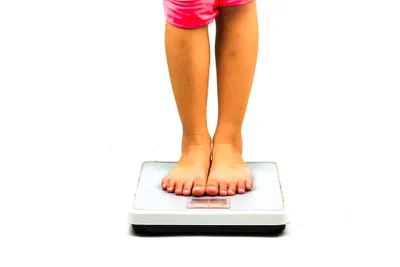When it comes to mental health affecting youth, there are many myths and misconceptions for parents and kids to overcome. The key to fighting any health condition, including a mental health illness, is knowing the facts. Only with the right information can we develop an effective plan for safely and effectively dealing with these mental health issues.
The first and perhaps most important fact is that approximately 20 percent of all youths aged 13 to 18 will have a serious mental illness, according to the National Institute of Mental Health. That’s one in five. But what else do we need to know about the way mental illness affects our youth?
1. Drug or Alcohol Use is a Warning Sign
There’s no denying that most kids will experiment with drugs or alcohol during their teenage years. Movies and television shows often glamorize the use of booze and drugs like marijuana or cocaine, giving kids the impression that it’s cool to use them.
But according to the National Institute on Drug Abuse, repeated and frequent use of drugs or alcohol could be a sign that your teen is trying to compensate for a growing mental health problem. They may be using these substances to overcome serious issues with anxiety, depression, or something else.
2. Watch for Fluctuations in Weight
Hollywood movie stars are rarely overweight and almost never obese. Kids notice this and respond by desperate trying to emulate the stars. But here’s the thing: unlike your kids, Hollywood stars have all day to work with personal trainers and get the bodies they desire.
Unfortunately, kids don’t notice that. A desire to look like movie stars or other celebrities can lead teens to avoid eating, throw up after eating, or tax laxatives to lose weight. Sadly, a failure to lose weight can lead to binging, which only makes the problem worse. If your teen is experiecing weight fluctuations, it may be a sign of a deeper mental health problem.
3. Prolonged Periods of Sadness or Apathy
Most of us know that feeling said and withdrawing from social activity is a sign of depression. But most kids go through funks, especially after upsetting events (i.e., like a relationship breakdown, the divorce of parents, or the death of a loved one).
But how long should that last? Experts at PsychCentral.com believe that feeling sad or withdrawn should last no more than about two weeks. Prolonged periods of crying, fatigue, and feelings of apathy lasting a month or longer could be a sign that depression has taken hold.
4. Mental Health Issues Make School Tough
There are some kids who can effectively hide a mental illness, making it extremely difficult for parents, teachers, and other youths to detect and go about addressing the problem. But for many other kids, a mental health issue prevents them from succeeding in the classroom.
Specifically, about one in ten kids have a behavior or conduct disorder that can make it very difficult for them to focus on the tasks at hand. It can also make them lash out at authority, including their teachers and principal, according to research from the American Family Physician.
5. Mental Illness Can Lead to School Drop Out
Most kids, even those without any significant mental health issues, would rather take the day off than go to school. However, for kids with serious mental health disorders, going to school isn’t just a pain, it’s a serious problem.
That’s why about half of all students aged 14 and older who have a mental illness will drop out of school before they get their high school diploma, according to statistics from the National Alliance on Mental Illness. That makes it almost impossible for them to get into college or university and will severely limit their chances of landing a high-paying job in the workforce.
6. It Can be Fatal
Not all kids with a mental illness are in danger of losing their lives. But it would be foolish to dismiss a mental health episode as nothing more than a growing pain. That’s because the vast majority of people who die by suicide (an estimated 90 percent) had some kind of underlying mental illness when they died, according to the National Alliance on Mental Illness.
The problem is especially apparent among youths. Currently, suicide is the third leading cause of deaths in people aged ten to 24. That’s why it’s so important to talk to kids whenever they make serious or even joking references to taking their own lives.
7. Don’t Go it Alone
Most parents want to solve all of their kids’ problems on their own. And while that strategy might have worked when your kids were very young, it’s less likely to work with older youths struggling with a mental health condition.
Instead, consider reaching out to your doctor, who can diagnose your child and possibly refer them to a mental health specialist. You should also consider working with your child’s school and other families going through similar issues.









